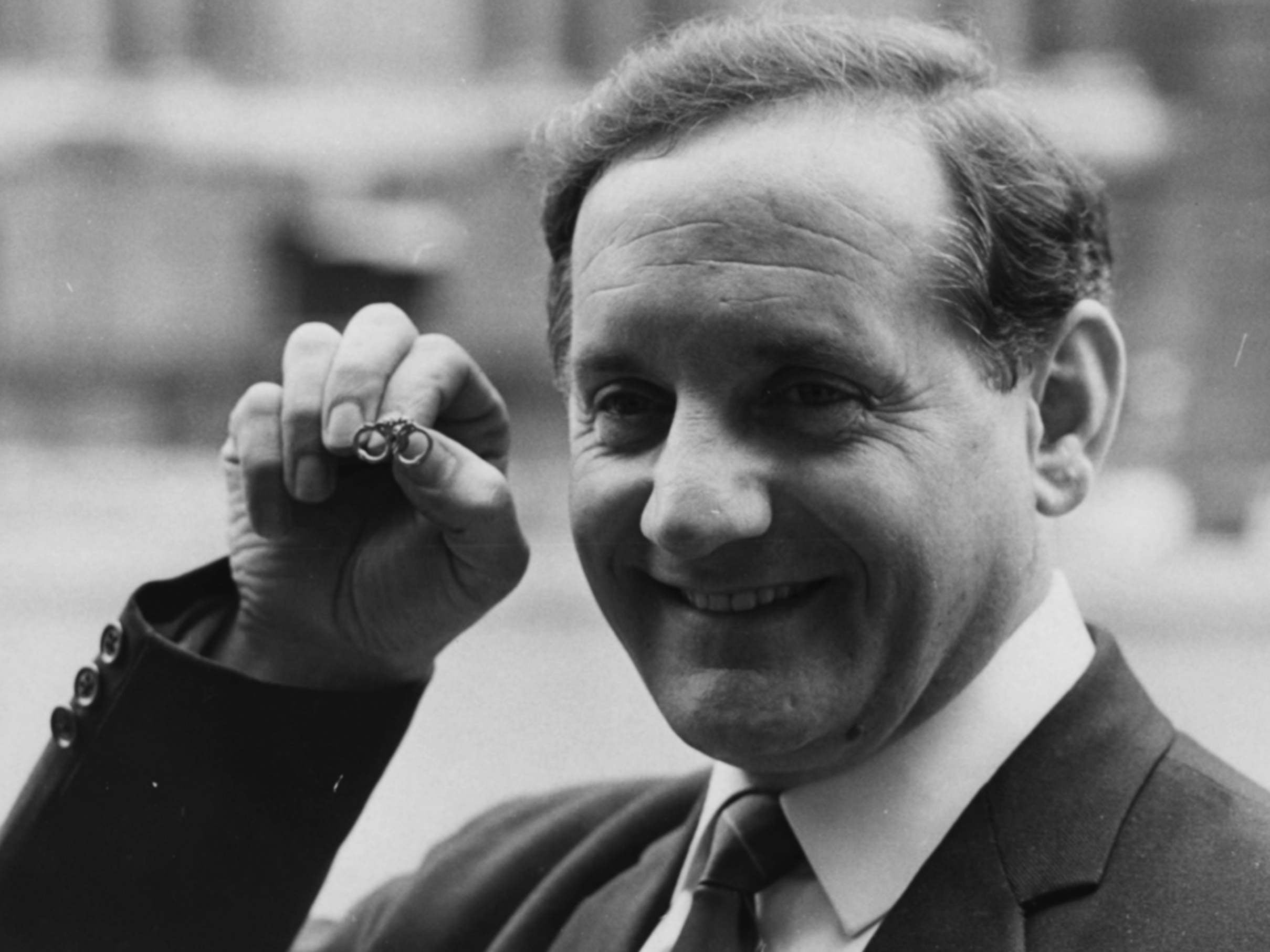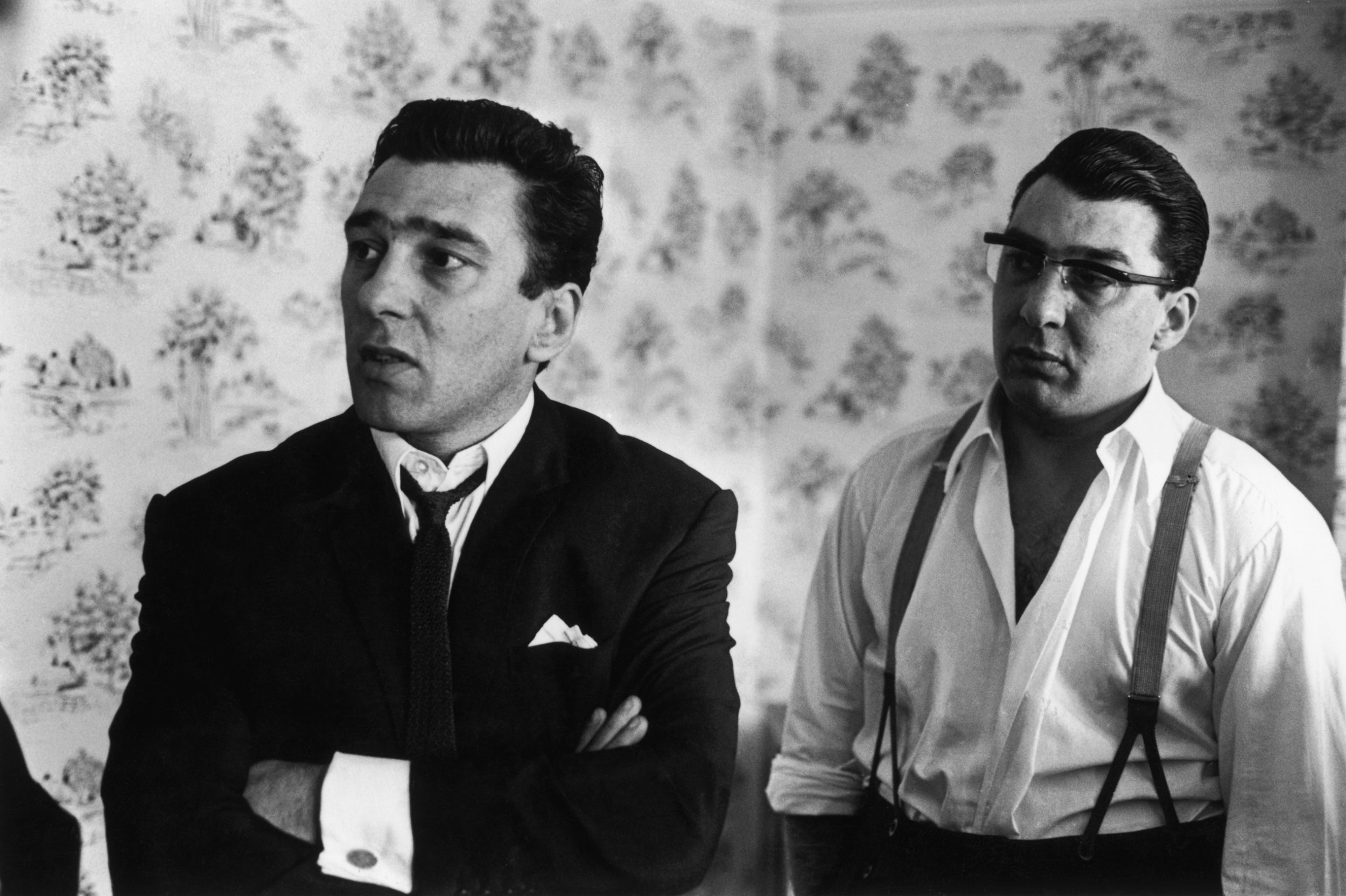Leonard ‘Nipper’ Read: Detective who brought the Krays to justice
He forged a reputation for being meticulous and incorruptible and oversaw one of the most notorious investigations of the past century

Leonard Read, who has died aged 95, was the Metropolitan Police murder squad detective who led the successful investigation into the brutal criminal career of the Kray twins, a pair whom he considered to be “wicked, unscrupulous, murdering villains”.
Read could not abide the popular romantic characterisation of the Krays and their gangland exploits in their portrayal as “loveable rogues”, as he once said in interview: “That was only a facade, the view they projected to people. Underneath all of that was this reign of absolute terror which controlled the East End in a vice-like grip.”
Read was born in 1925 in Nottingham. He was four years old when his mother died and he, his two sisters and brother were sent to live with relatives. He thrived at school, both academically and in sport, and joined the Grundy Boxing Club, where he won his first medal, aged 12. Leaving school, he worked at the Player’s warehouse, feeding leaf tobacco into a shredder before it was rolled into cigarettes.
Nicknamed for his quick moves and short stature, “Nipper” Read did not measure up to the minimum 6ft height requirement for the Nottinghamshire Police, so in 1947 he journeyed south and joined the Met, where the minimum height was 5ft 8in. “I was very small and very thin and didn’t look anything like a policeman should,” he later said.
He rose steadily through the ranks and arrived in 1964 as a detective inspector at Leman Street police station in Tower Hamlets, an outpost that had previously been associated with the notorious Whitechapel murders of the late 19th century and the Cable Street riots of 1936.
George Cornell was a member of the infamous Richardson gang of scrap-metal dealers and criminals. On 9 March 1966 he and his friend, Albie Woods, visited The Blind Beggar in Whitechapel for a drink. They were sitting on stools next to the bar when Ronnie Kray and Ian Barrie entered the pub. Cornell was heard to say “Well, just look who’s here” and then called Kray a “fat poof”. In an act of bravado, Barrie fired two warning shots into the ceiling while Kray drew a 9mm Luger pistol and shot Cornell in the forehead. He died in hospital a few hours later.
Ronnie Kray was taken into custody but soon released when, despite the presence of numerous witnesses, no one would positively identify him out of fear of reprisal. The following year, Read, who had been promoted to detective chief superintendent, was given the task of investigating the murders of Cornell and of Jack McVitie, killed in Stoke Newington. He had already gained a reputation for being meticulous and, most importantly for this case, incorruptible.

A team of 10 officers, led by Read and based at City Road police station, collaborated on building the case against the Krays while at the same time some 200 officers were deployed to protect the witnesses. Asked how he was able to guarantee the safety of those testifying, Read replied: “It was difficult … People knew me and that was important, I think people had got confidence in me.”
The culmination of Read’s years of painstaking work came on 4 March 1969, when a jury at the Old Bailey unanimously found Ronnie Kray guilty of the murder of George Cornell and Reggie Kray was found guilty of the murder of Jack McVitie. They were given life sentences with a tariff of 30 years, the longest sentence ever imposed at that court. Justice Melford Stevenson told the Krays: “In my view, society has earned a rest from your activities.”
Ronnie Kray died in Broadmoor Hospital in 1995. Reggie Kray spent 32 years in prison before being released on compassionate grounds in 2000. He died of cancer a few months later.
Following the Kray case, Read became assistant chief constable at Nottinghamshire Police and national coordinator of the regional crime squads.
Upon retirement, he returned to his other passion, later becoming chair of the British Boxing Board of Control. His memoir, Nipper Read: The Man Who Nicked the Krays, co-written with James Morton, was published in 2001.
His is survived by Pat Allen, whom he married in 1980, and by Maralyn, his daughter from his first marriage to Marion Millar.
Leonard Read, police officer, born 31 March 1925, died 7 April 2020
Join our commenting forum
Join thought-provoking conversations, follow other Independent readers and see their replies
Comments
Bookmark popover
Removed from bookmarks